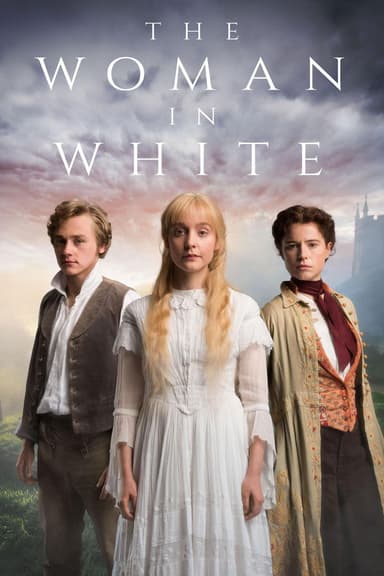
The Cinder Path
1994 • Drama
In a heroic journey of epic proportions, everyman Charlie McFell wrestles with his demons — including a coldhearted wife, economic hardship, the horror of the world's first Great War, and a painful secret he'd rather forget.
Why you should read the novel
Catherine Cookson’s novel The Cinder Path offers readers a deeply immersive experience, delving into the inner thoughts and complex motivations of its richly drawn characters. The book provides a nuanced exploration of moral dilemmas, family conflict, and personal growth that is difficult to fully capture on screen. By reading the novel, you'll gain a more intimate understanding of the emotional and psychological struggles faced by Charlie MacFell as he navigates love, duty, and the consequences of his past.
The novel’s vivid descriptions transport readers to the heart of rural England and the chaos of World War I, painting a detailed picture of the social landscape and its profound impact on personal lives. Cookson’s skillful storytelling brings authenticity and depth to every character, allowing you to experience the story’s tension and triumphs first-hand and at your own pace.
Choosing to read The Cinder Path rather than simply watching the TV adaptation enables you to savor the subtleties of Cookson’s writing and the era she so meticulously portrays. The book’s layers of meaning reward careful consideration, making it an enduring and unforgettable literary journey.
Adaptation differences
The television adaptation of The Cinder Path condenses several subplots and streamlines supporting characters, which results in less background detail and reduced complexity in character development compared to the novel. Many internal monologues and psychological nuances from Charlie MacFell’s perspective are either omitted or dramatically simplified, making some of his choices appear less motivated than in the book.
In the novel, Catherine Cookson devotes considerable attention to the generational conflicts and the oppressive presence of Charlie’s father, which are only partially depicted in the series. The depth of secondary characters, such as Victoria and Nellie, is also minimized in the adaptation; their relationships with Charlie are depicted with less subtlety, shifting some sympathetic focus away from the supporting cast.
Key plot events—especially those showing the social and emotional upheaval caused by World War I—are either abbreviated or visually dramatized in ways that change the story’s emphasis. The pacing of the TV series accelerates certain reveals and resolutions, which dilutes some of the tension and build-up found in Cookson’s book.
Moreover, the adaptation occasionally alters or omits scenes to fit a television format and running time, resulting in less narrative ambiguity and a more straightforward interpretation of events. This can lead viewers to miss some of the story’s underlying themes and moral complexities, making the experience of watching the series quite different from immersing yourself in the novel.
The Cinder Path inspired from
The Cinder Path
by Catherine Cookson




















